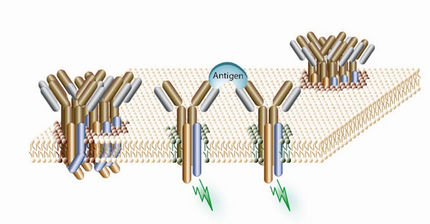Oncothyreon's PX-478 is effective in preclinical model of human lung cancer
Oncothyreon Inc. announced the presentation of data demonstrating the effectiveness of PX-478 in a preclinical model of human lung cancer at the 8th Annual Targeted Therapies of the Treatment of Lung Cancer meeting of the International Association for the Study of Lung Cancer in Santa Monica, California. The data were presented by Jorg J. Jacoby, Ph.D., Instructor, University of Texas M.D. Anderson Cancer Center, Houston. Oncothyreon's PX-478 is a small molecule inhibitor of hypoxia inducible factor (HIF)-1 alpha currently in a Phase 1 trial in patients with advanced metastatic cancer and lymphoma.
The study employed a model of lung cancer in mice, which closely mimics the disease in humans. Treatment with oral PX-478 for five days resulted in significant inhibition of tumor growth, marked reduction in lymph nodes metastases, decreased volume of pleural effusions, and significantly improved survival. PX-478 was effective in models of both non-small cell lung cancer and small cell lung cancer that express HIF-1 alpha.
"These data suggest that antagonism of HIF-1 alpha with PX-478 significantly inhibits the growth and spread of lung cancers expressing HI-1 alpha and will prove valuable in planning clinical trials of this novel agent," said Roy Herbst, M.D., Professor, Thoracic/Head & Neck Medical Oncology, M.D. Anderson Cancer Center, and senior author of the current study. "We look forward to conducting further studies of PX-478 in combination with other agents used in the treatment of these diseases, and to participating in future clinical trials of this highly promising drug candidate."
Enrollment is ongoing in the Phase 1 dose escalation trial of PX-478 in patients with advanced metastatic cancer and lymphoma. Clinical data from this trial are expected in the second half of 2008.
Topics
Organizations
Other news from the department research and development

Get the life science industry in your inbox
By submitting this form you agree that LUMITOS AG will send you the newsletter(s) selected above by email. Your data will not be passed on to third parties. Your data will be stored and processed in accordance with our data protection regulations. LUMITOS may contact you by email for the purpose of advertising or market and opinion surveys. You can revoke your consent at any time without giving reasons to LUMITOS AG, Ernst-Augustin-Str. 2, 12489 Berlin, Germany or by e-mail at revoke@lumitos.com with effect for the future. In addition, each email contains a link to unsubscribe from the corresponding newsletter.






















































